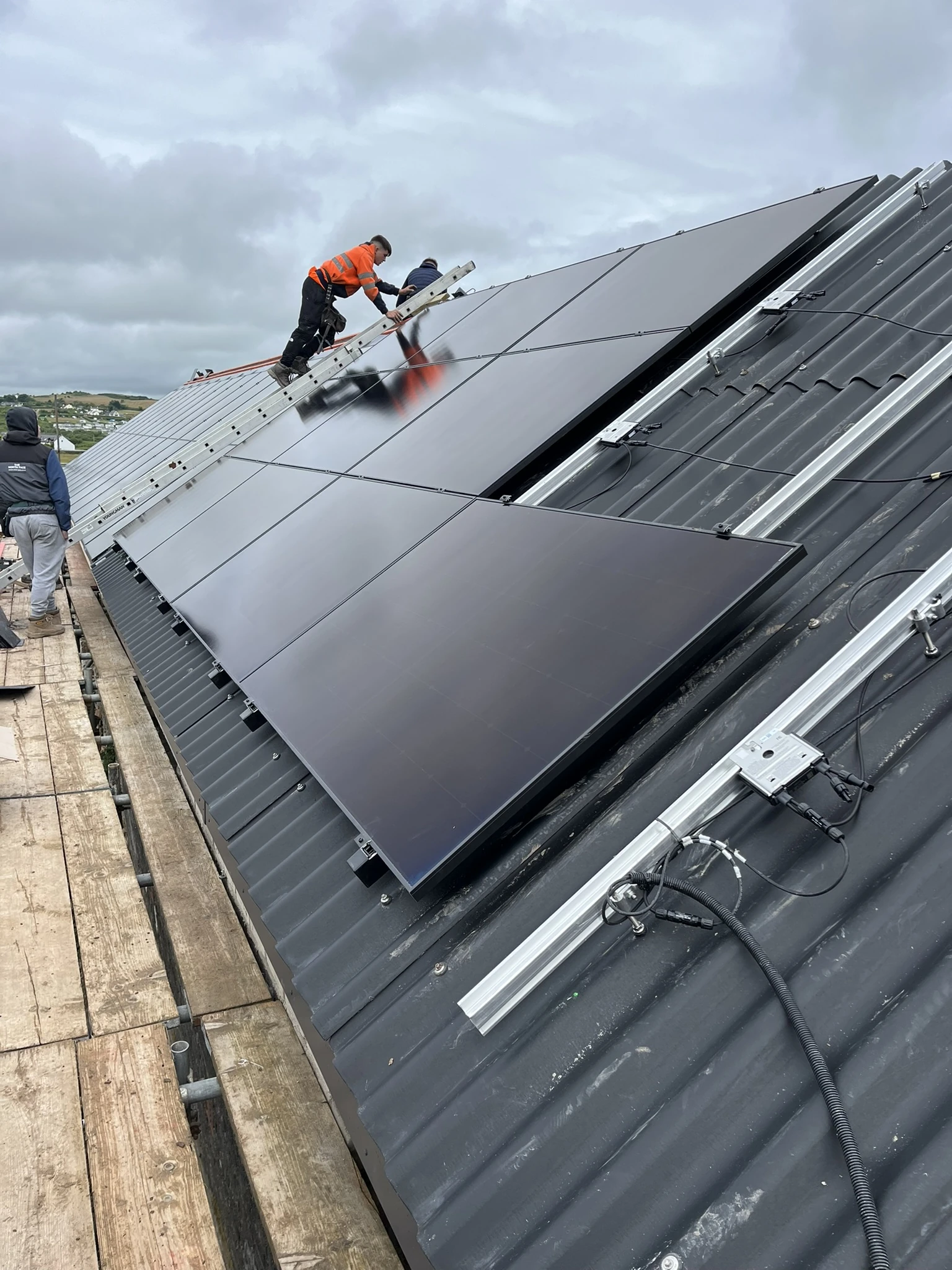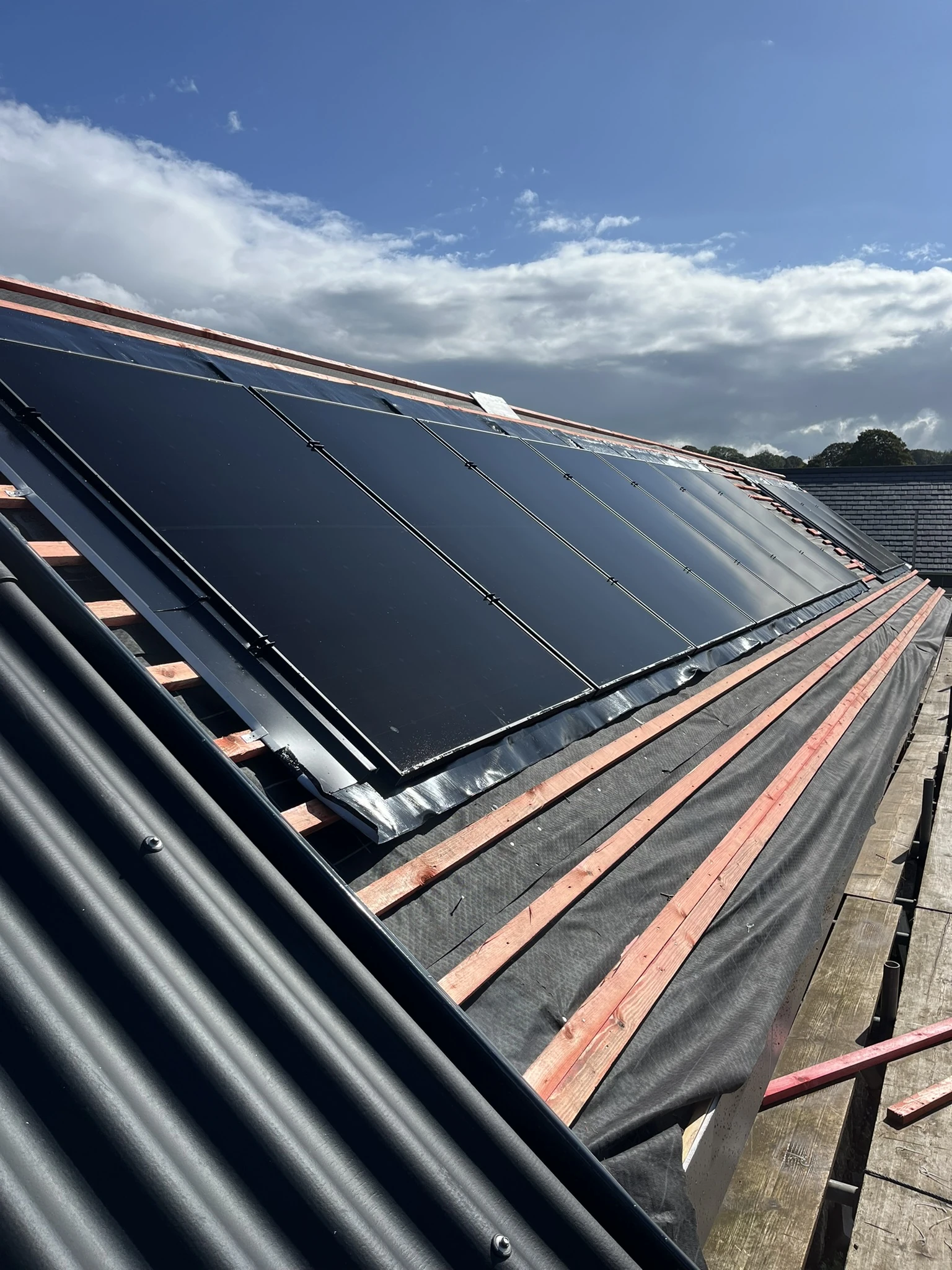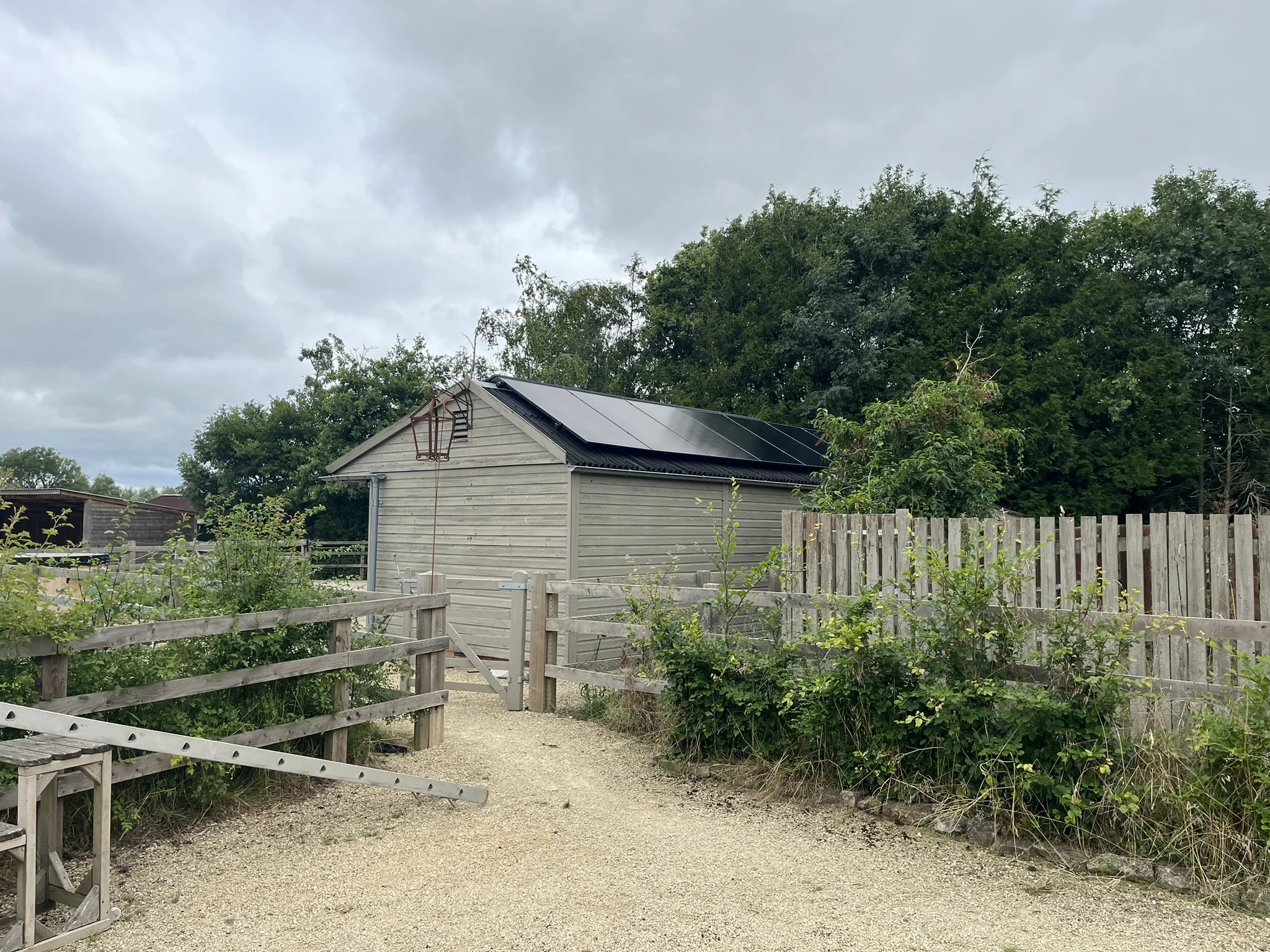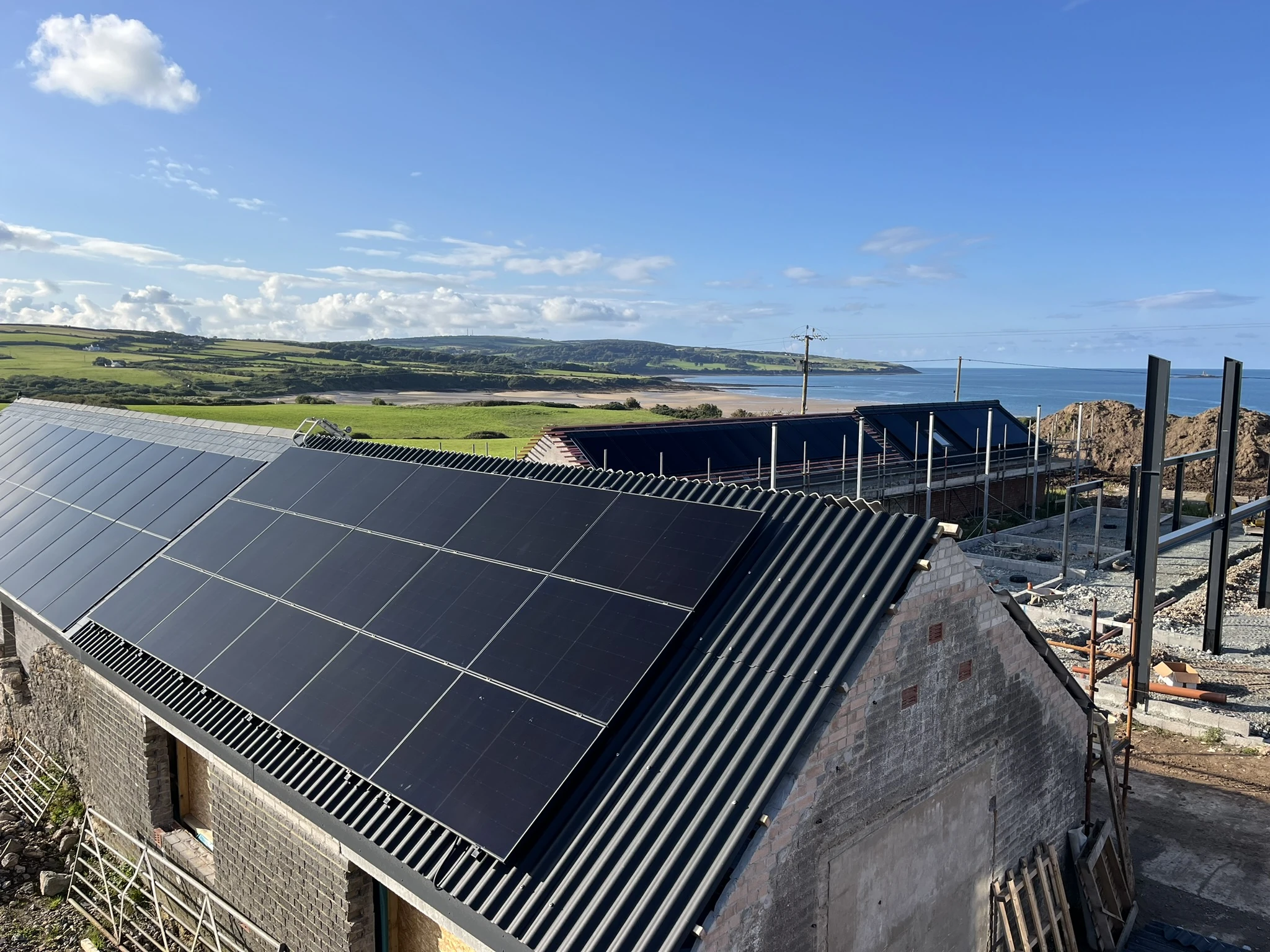· 3 min read
Do Solar Panels Work in Bad Weather? The Truth About Solar Performance in UK Conditions
How do solar panels perform in different weather conditions, from cloudy days to winter months. Learn expert tips for maximizing your solar energy generation throughout the year.

One of the most common questions we hear at Yarmer Renewables is “Do solar panels really work in British weather?” The simple answer is yes - but there’s much more to understand about how different weather conditions affect your solar panel performance and what you can do to maximize their efficiency.
Solar Performance Across Different Weather Conditions
Sunny and Clear Days
Perfect sunny days are when solar panels reach their peak performance. During these optimal conditions, your solar panels can operate at maximum efficiency:
- Maximum Output: Panels typically generate 100% of their rated capacity during peak sunlight hours
- Temperature Considerations: While sunlight is excellent, very hot temperatures can actually reduce efficiency by 10-25%
- Optimal Hours: The best generation usually occurs between 10am and 4pm on clear days
- Seasonal Variation: Even in winter, clear sunny days can produce excellent results due to the cooling effect of lower temperatures
Cloudy Days
Despite what many believe, solar panels don’t need direct sunlight to generate electricity. Modern solar panels are remarkably efficient at converting diffused light into energy.
Did you know? Solar panels can still generate 10-25% of their optimal output on cloudy days. In fact, some conditions with light cloud can actually boost performance through something called the “edge-of-cloud” effect.
Rain and Storm Conditions
Rain isn’t actually bad news for your solar panels. Here’s why:
Natural Cleaning
- Rain helps wash away dust and debris
- Improves panel efficiency
- Reduces maintenance needs
Cooling Effect
- Lower temperatures improve efficiency
- Optimal operating temperature maintained
- Potential performance boost after rain
Winter Performance
Solar panels can actually be more efficient in cold, clear winter conditions
Winter brings unique conditions that affect solar generation:
| Weather Condition | Impact on Performance | Optimization Tips |
|---|---|---|
| Snow | Temporary reduction | Install at optimal angle |
| Frost | Minimal impact | Anti-reflective coating |
| Short days | Reduced hours | Enhanced system design |
| Clear skies | Improved efficiency | Regular maintenance |
Maximizing Year-Round Performance
System Design Considerations
At Yarmer Renewables, we optimize every installation for local conditions:
Panel Orientation
- South-facing when possible
- East-west split for extended generation
- Optimal tilt angle for latitude
Equipment Selection
- High-efficiency panels
- Weather-resistant components
- Smart monitoring systems
Smart Technology Integration
Modern solar installations include sophisticated features to maximize performance:
Panel-Level Optimization
- Individual panel monitoring
- Automatic performance adjustments
- Shade tolerance
- Real-time problem detection
Weather-Smart Inverters
- Dynamic power optimization
- Grid stability management
- Performance tracking
Seasonal Maintenance tips for owners
Spring
- Professional system check
- Panel cleaning after pollen season
- Vegetation management
Summer
- Early morning inspections
- Shade assessment
- Performance monitoring
Autumn
- Leaf debris removal
- Weather seal inspection
- System health check
Winter
- Snow removal protocol
- Frost monitoring
- Performance analysis
Advanced Performance Features
Weather Monitoring Integration
Modern solar installations can include:
- Local weather station connection
- Predictive performance modeling
- Automated adjustment systems
Smart Home Integration
Connect your solar system with:
- Home energy management
- Battery storage optimization
- Smart appliance scheduling
Common Weather-Related Questions
FAQ
Q: Will hail damage my solar panels? A: Modern solar panels are tested to withstand hail up to 25mm in diameter. They’re extremely durable and rarely damaged by typical UK weather.
Q: Do panels need sunlight to work? A: No, panels use light energy, not heat. They can generate electricity from diffused light on cloudy days.
Q: Should I clean snow off my panels? A: Usually unnecessary - panels are installed at an angle, and snow typically melts quickly. Most systems can handle short periods of snow cover.
Looking to the Future
Emerging Technologies
New developments improving weather performance:
- Bifacial panels
- Anti-soiling coatings
- AI-powered optimization
- Improved energy storage
Expert Tips from Our Installation Team
Location Optimization
- Consider microclimate factors
- Analyze local weather patterns
- Plan for future changes
System Monitoring
- Track daily performance
- Set up alert systems
- Regular performance reviews
Maintenance Schedule
- Seasonal inspections
- Proactive cleaning
- Professional checks
Get the Most from Your Solar Investment
Whether you’re considering solar or already have a system installed, understanding weather impacts is crucial for maximizing your investment. At Yarmer Renewables, we ensure every installation is optimized for local conditions.
Ready to Learn More?
Contact our team for a free consultation:
- Phone: +44 7966 295073
- Email: info@yarmer.co.uk
Let us help you harness the power of solar energy, whatever the weather.
Yarmer Renewables - Your local experts in solar optimization across all seasons.



